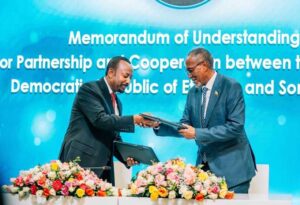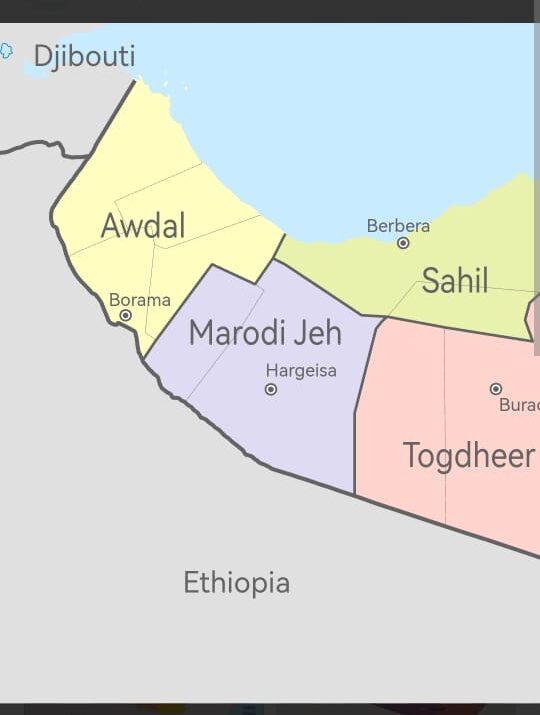 A CHANGE OF STRATEGY: ANALYZING THE MOU WITH DANGERS ASSOCIATED
A CHANGE OF STRATEGY: ANALYZING THE MOU WITH DANGERS ASSOCIATED
The issue of the Memorandum of Understanding (MoU) with potential dangers associated is one that is currently at the forefront of political discourse in Somaliland. The Kulmiye government’s handling of the situation has sparked concerns among the public, with many questioning the transparency and intentions of the government in its dealings with external partners.
Recent developments have only served to deepen these concerns, as conflicting reports and ambiguous statements from government officials have only added to the speculation surrounding the MoU. President Bihi’s decision to form an expert committee to study the MoU and advise him on any potential pitfalls was initially seen as a positive step towards ensuring transparency and accountability in the government’s actions. However, the lack of clarity and conflicting information coming from the committee’s findings have only served to raise more questions than answers.
The committee’s interactions with various stakeholders, including political parties and civil society organizations, have further exacerbated the situation. The civil society groups, in a press release, have highlighted the need for the government to be transparent and forthcoming about the details of the MoU, emphasizing that the issue at hand is a matter of national destiny that concerns future generations. Their call for the government to release a public statement detailing the content and implications of the agreement is not only reasonable but necessary for ensuring the public’s trust in the government’s actions.
At this juncture, two possible scenarios can be inferred from the government’s actions – either they are deliberately concealing the detrimental aspects of the MoU in a bid to secure reelection, or they are employing deceptive tactics to delay public knowledge of the agreement’s details until it is too late to reverse course. In either case, the lack of transparency and accountability in the government’s dealings with the MoU is deeply concerning and calls for immediate action.
It is imperative for the people of Somaliland, in general and particularly Awdalites, to remain vigilant and prepared to defend their homeland against any potential threats that may arise from the MoU. The government’s lack of transparency and clarity in this matter is a cause for concern, and the public must demand accountability from their leaders. Only by holding the government accountable and demanding transparency can the people ensure that their best interests are being served in these crucial but unfortunate negotiations.
In conclusion, the issue of the MoU with potential dangers associated is one that demands immediate attention and resolution. The government’s actions and lack of transparency have raised serious concerns among the public, and it is essential for the people of Somaliland to remain vigilant and demand accountability from their leaders. Transparency and openness in this matter are crucial for ensuring the best interests of the nation are upheld, and the government must act accordingly to address these concerns.




